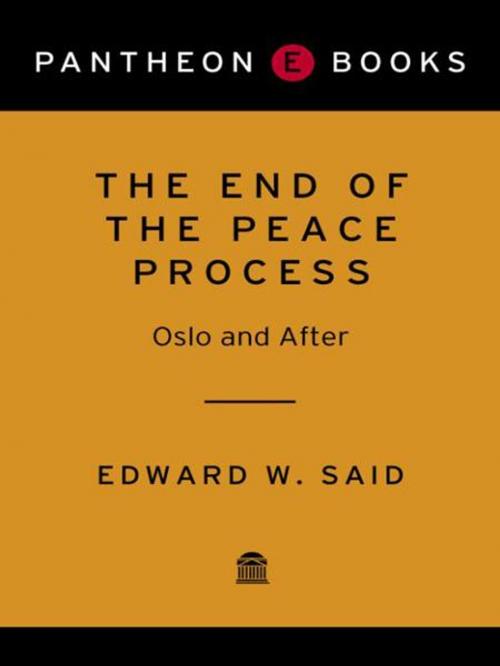The End of the Peace Process
Oslo and After
Nonfiction, History, Middle East, Social & Cultural Studies, Political Science, International, International Relations| Author: | Edward W. Said | ISBN: | 9780307428523 |
| Publisher: | Knopf Doubleday Publishing Group | Publication: | December 18, 2007 |
| Imprint: | Vintage | Language: | English |
| Author: | Edward W. Said |
| ISBN: | 9780307428523 |
| Publisher: | Knopf Doubleday Publishing Group |
| Publication: | December 18, 2007 |
| Imprint: | Vintage |
| Language: | English |
Soon after the Oslo accords were signed in September 1993 by Israel and Palestinian Liberation Organization, Edward Said predicted that they could not lead to real peace. In these essays, most written for Arab and European newspapers, Said uncovers the political mechanism that advertises reconciliation in the Middle East while keeping peace out of the picture.
Said argues that the imbalance in power that forces Palestinians and Arab states to accept the concessions of the United States and Israel prohibits real negotiations and promotes the second-class treatment of Palestinians. He documents what has really gone on in the occupied territories since the signing. He reports worsening conditions for the Palestinians critiques Yasir Arafat's self-interested and oppressive leadership, denounces Israel's refusal to recognize Palestine's past, and—in essays new to this edition—addresses the resulting unrest.
In this unflinching cry for civic justice and self-determination, Said promotes not a political agenda but a transcendent alternative: the peaceful coexistence of Arabs and Jews enjoying equal rights and shared citizenship.
Soon after the Oslo accords were signed in September 1993 by Israel and Palestinian Liberation Organization, Edward Said predicted that they could not lead to real peace. In these essays, most written for Arab and European newspapers, Said uncovers the political mechanism that advertises reconciliation in the Middle East while keeping peace out of the picture.
Said argues that the imbalance in power that forces Palestinians and Arab states to accept the concessions of the United States and Israel prohibits real negotiations and promotes the second-class treatment of Palestinians. He documents what has really gone on in the occupied territories since the signing. He reports worsening conditions for the Palestinians critiques Yasir Arafat's self-interested and oppressive leadership, denounces Israel's refusal to recognize Palestine's past, and—in essays new to this edition—addresses the resulting unrest.
In this unflinching cry for civic justice and self-determination, Said promotes not a political agenda but a transcendent alternative: the peaceful coexistence of Arabs and Jews enjoying equal rights and shared citizenship.















